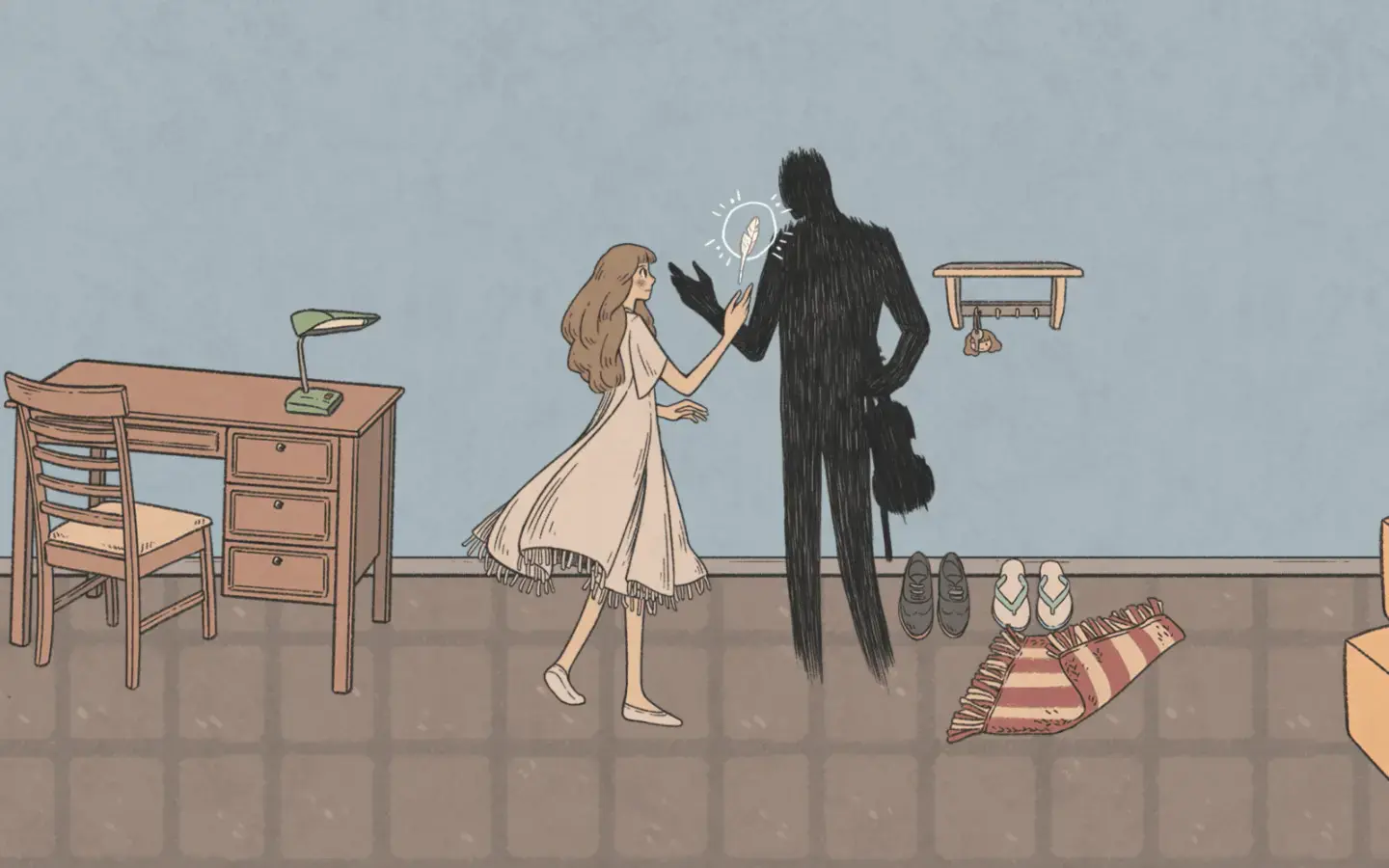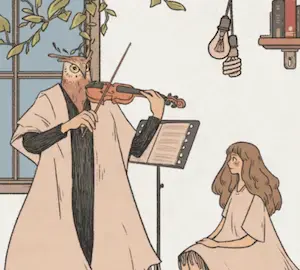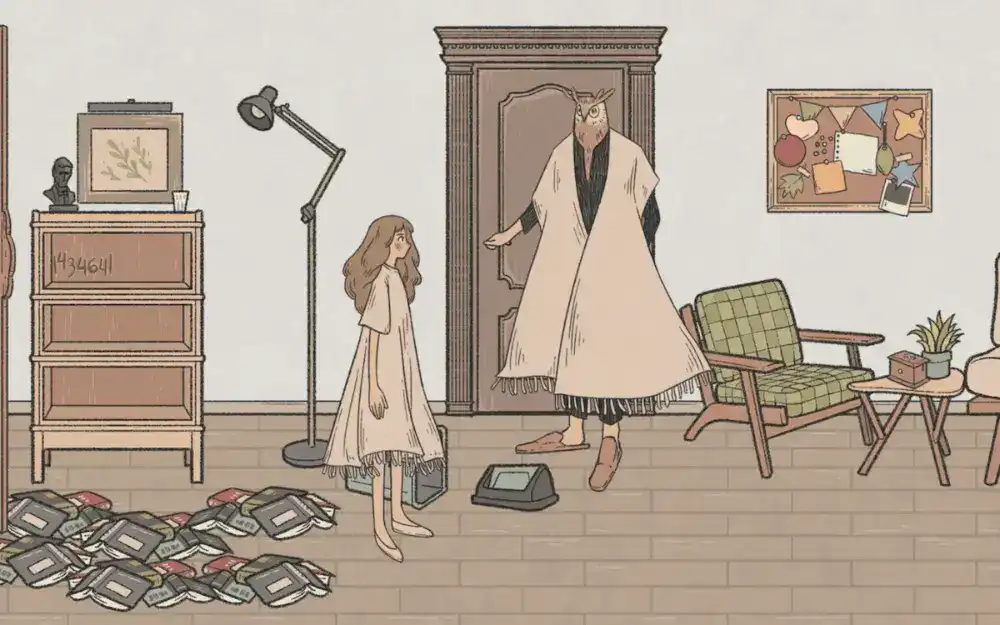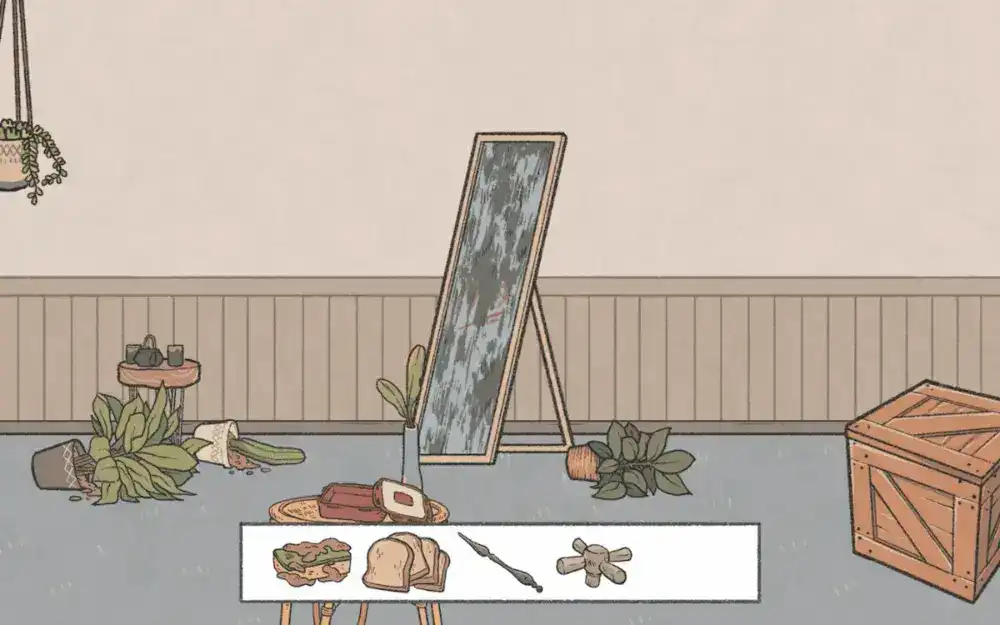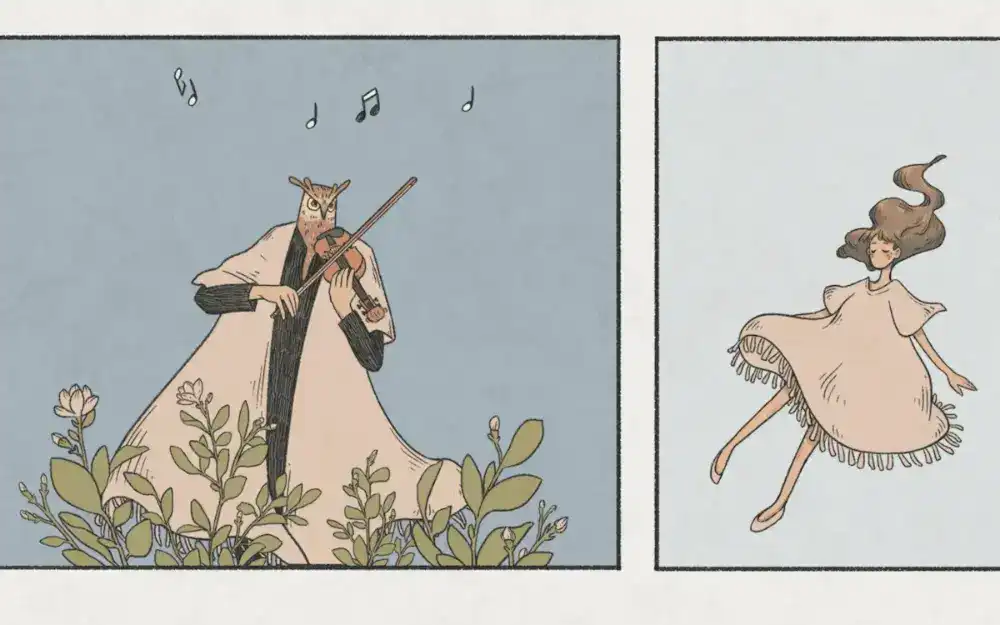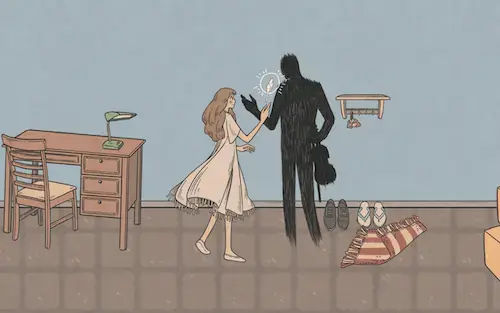When the Past Was Around's prologue opens with beautiful, sentimental piano and violin music, a soft introduction to the emotions you'll experience as you point and click your way through the intimate home of a girl and her partner, a faceless shadow of a man holding a shadow of a violin.
The game is beautifully illustrated, with soft colors and edges to match the background music, setting the nostalgic and tranquil mood of the story. As you tamper with various household items and instruments, solving puzzles and unlocking boxes, you'll find feathers which are always given to the shadow-man. This leads to him to walk out a door and into the next scene.
The story is told largely through this progression of scenes with the man and woman in different areas of their home, typically reading or cuddling and being overall very cozy. As you work your way through the scenes, the man also progressively becomes more than just a shadow — the first time, he gains a shawl and the next he gains clothes and an... owl mask?
From Soothing to Dissonant
Despite the soothing music, visuals, and tone of the game, something I noticed while playing is that the house you explore becomes more and more of a disarray due to your mouse-clicking shenanigans. This could just be normal gameplay visual feedback, yet still I can't help but wonder if it's perhaps a metaphor for the state of the main characters' relationship or environment.
This is especially noticeable because it contrasts so starkly with the calm and peaceful way the pair are sitting around — when I panned over to the couple and there were knocked over plants and a spilled bookshelf in the background of their tranquil positions, the dissonance was almost tangible.
I could just be getting ahead of myself, looking for analogies that aren't there, but I'm willing to bet it does mean something given how symbolic much of this game is.
Eventually, you give a third and last feather to the man and his shadow-violin regains its color, becoming a full violin and leading to a beautiful closing scene for the prologue. As he plays the violin, the girl gets carried away by the music, literally.
As she is carried away, she floats closer and closer to the man and his violin, then at last grasps the violin. But this is where the piano music jarringly strays from its soft tones to become a mess of a melody and the girl is jolted as if with an electric shock. She drops down heavily to where she is alone, with only a door in front of her.
As you exit through the door, the demo ends leaving you wondering just what happened when the past was around.
Easy on the Eyes and Ears
Everything about this prologue was soothing, as I have constantly been mentioning. From the gameplay to the art style to the sound effects during my search for items and feathers, everything was tranquil and easy on the eyes and ears.
The scenes progressed at an even pace, and the narrative within them was ever-present yet left you with enough space to imagine and fill in the blanks. The symbolism in each scene was subtle but not hard to pick up when the contrasting visuals were placed side-by-side.
Most of all, the piano and violin accompanying the journey was beautiful and perfectly fitting even when it suddenly became an aggressive jumble as the story climaxed at the end. It was a perfect mood-setter and made this game whole.
This was a thoroughly enjoyable though short playthrough, leaving me as relaxed as I would be after a head massage, but with a lot of questions left unanswered. I just couldn't decipher all of its cryptic symbolism in this first playthrough.
I have been thoroughly convincing me to get the full game when it's released later this year in 2020 and would highly recommend checking out the prologue before then to get a taste of this relaxing, heartstring-tugging game.
